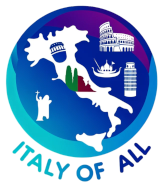The province of Udine, located in the northeastern region of Italy known as Friuli Venezia Giulia, showcases a rich blend of cultural heritage, diverse landscapes, and economic vitality. This province is notable for its historical ties to both Latin and Slavic influences, making it a unique cultural crossroads in Italy.
Geographically, Udine is bordered by Austria to the north and Slovenia to the east, with the Adriatic Sea to the south. Its terrain varies from the flat plains in the south to the rugged Alpine foothills in the north, offering a scenic mosaic of vineyards, rivers, and mountains. This geographical diversity supports a variety of outdoor activities, from skiing and hiking in the Carnic Alps to wine tasting in the renowned vineyards of the Collio area.
Historically, Udine has a complex history shaped by its position at the crossroads of Latin, Germanic, and Slavic worlds. Historically part of the patriarchate of Aquileia, the area became a significant cultural and political center under the Venetian Republic in the Middle Ages. Udine’s architectural and artistic heritage reflects these varied influences, with significant landmarks such as Udine Castle, which houses several museums, and the Piazza della Libertà, famed for its Venetian Gothic architecture.
Culturally, Udine is a vibrant hub that celebrates its multicultural roots through various festivals, music, and art events. The province is home to numerous theaters, galleries, and concert venues that showcase both traditional and contemporary performances, reflecting its diverse cultural makeup. The Udine Far East Film Festival, for example, is one of the most important Asian film festivals in Europe, highlighting the province’s openness to global cultural dialogues.
Cuisine in Udine is emblematic of its cross-cultural influences, featuring dishes from traditional Friulian cuisine combined with Austrian, Slovenian, and Venetian flavors. Typical dishes include “frico” (a cheese and potato pancake), “gubana” (a nut and dried fruit cake), and San Daniele prosciutto, a delicacy known worldwide. These culinary traditions are complemented by excellent local wines like Friulano and Ribolla Gialla.
Economically, Udine’s economy is robust, with strong sectors in manufacturing, particularly furniture and home appliances, which are exported globally. Agriculture remains a vital part of the economy, with the production of wine, prosciutto, and cheese being particularly significant. The area’s strategic location near several major European borders also makes it a crucial hub for trade and logistics.
Despite challenges such as maintaining its cultural heritage in the face of globalization and managing economic transitions, Udine is proactive in promoting sustainable tourism, preserving its environment, and supporting local industries. The province’s commitment to balancing economic growth with environmental sustainability ensures a resilient future.
Overall, the province of Udine offers a dynamic mix of history, culture, and economic strength. Its ongoing efforts to preserve its unique cultural identity while fostering sustainable development continue to make it a significant and vibrant part of Italy’s cultural and economic landscape.
Comuni in Udine Province:
- Bertiolo
- Arta Terme
- Amaro
- Artegna
- Aiello del Friuli
- Bordano
- Basiliano
- Bagnaria Arsa
- Bicinicco
- Attimis
- Aquileia
- Camino al Tagliamento
- Buttrio
- Castions di Strada
- Campolongo Tapogliano
- Buja
- Campoformido
- Cassacco
- Carlino
- Forni di Sotto
- Corno di Rosazzo
- Cavazzo Carnico
- Coseano
- Comeglians
- Chiusaforte
- Cervignano del Friuli
- Colloredo di Monte Albano
- Fagagna
- Cividale del Friuli
- Fiumicello Villa Vicentina
- Forni Avoltri
- Chiopris-Viscone
- Dogna
- Drenchia
- Forni di Sopra
- Faedis
- Cercivento
- Forgaria nel Friuli
- Codroipo
- Enemonzo
- Flaibano
- Dignano
- Majano
- Marano Lagunare
- Lauco
- Lestizza
- Fusine
- Gemona del Friuli
- Gonars
- Lignano Sabbiadoro
- Martignacco
- Malborghetto Valbruna
- Lusevera
- Grimacco
- Magnano in Riviera
- Moimacco**
- Palmanova
- Paularo
- Pagnacco
- ** Mereto di Tomba
- Moraro
- Pavia di Udine
- Pasian di Prato
- Paluzza
- Osoppo
- Palazzolo dello Stella
- Muzzana del Turgnano
- Moggio Udinese
- Mossa
- Nimis
- Ovaro
- Moruzzo
- Rivignano Teor
- Prato Carnico
- PulaPulfero
- Ravascletto
- Preone
- Raveo
- Ronchis
- Prepotto
- Pozzuolo del Friuli
- Pradamano
- Rive d’Arcano
- Pontebba
- Pramollo
- Rigolato
- Remanzacco
- Pocenia
- Povoletto
- Resia (UD)Resiutta
- Porpetto
- Reana del Rojale
- Precenicco
- Premariacco
- Ragogna
- San Pietro al Natisone
- Sedegliano
- San Vito al Torre
- San Giorgio di Nogaro
- San Giovanni al Natisone
- Stregna
- San Pietro in Gu
- San Daniele del Friuli
- San Vito di Fagagna
- Sauris
- Savogna
- Sappada
- Stignano
- Santa Maria la Longa
- Tavagnacco
- Tricesimo
- Venzone
- Tarcento
- Torreano
- Udine
- Torviscosa
- Zuglio
- Varmo
- Tarvisio
- Trivignano Udinese
- Villa Santina
- Trasaghis
- Tolmezzo
- Treppo Ligosullo
- Verzegnis
- Visco
- Treppo Grande
- Sutrio
